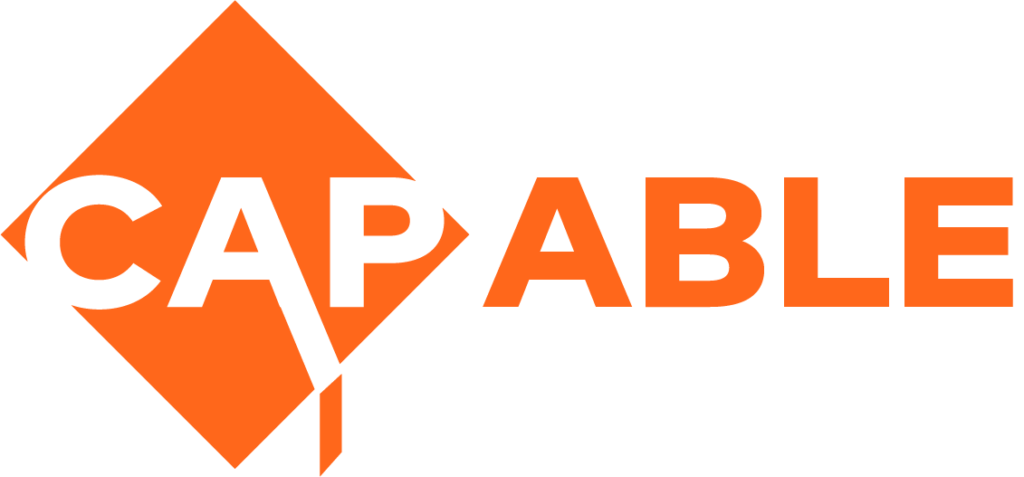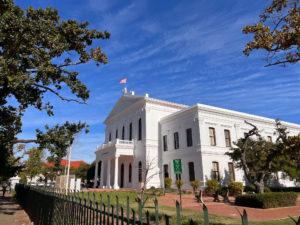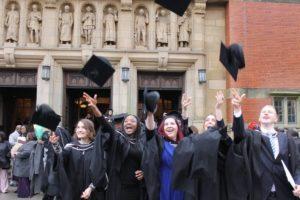Changing Narratives and Creating Conversation: One Woman's Journey To Transformative Leadership
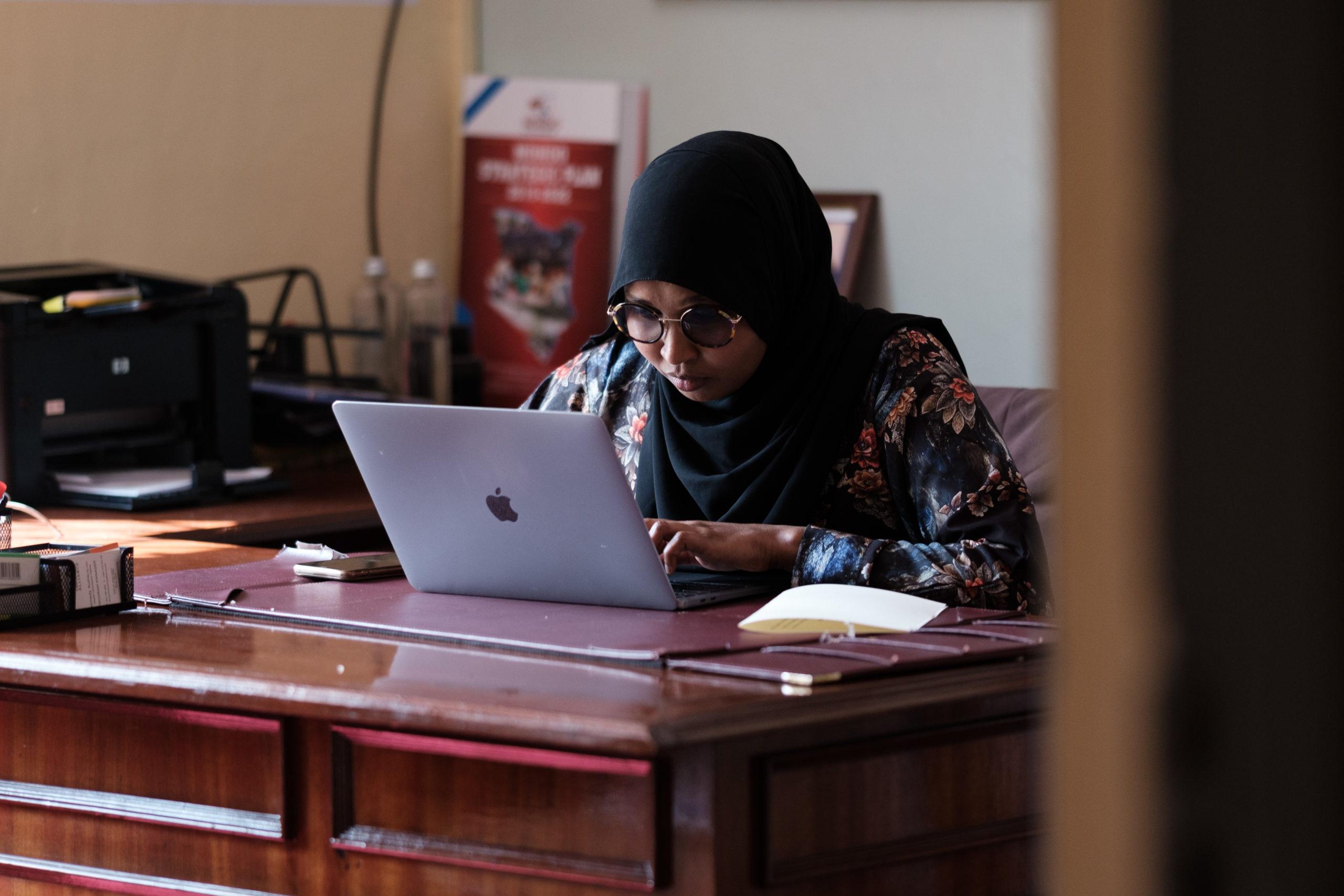
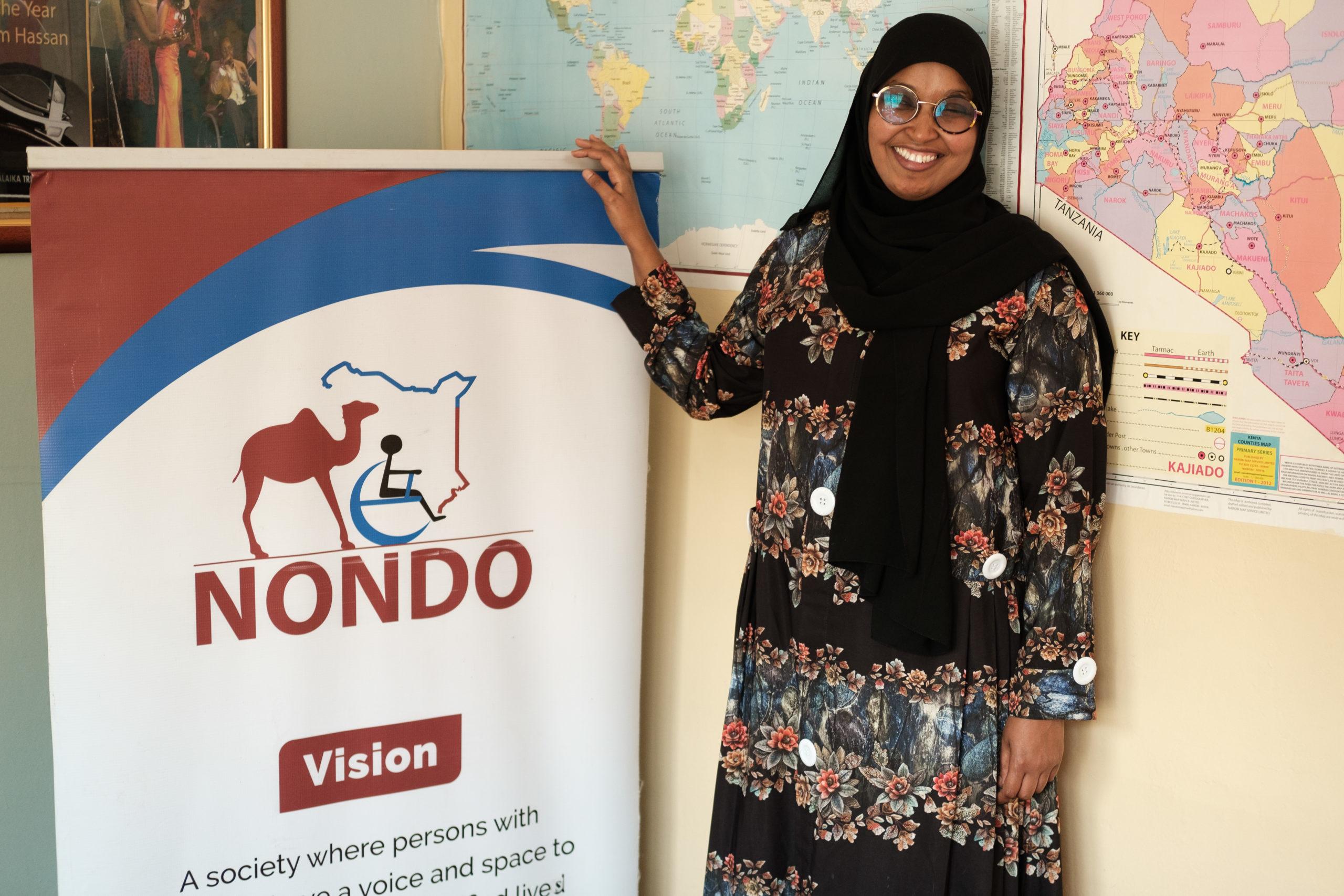
Fatuma Mohamed, based in Nairobi, Kenya is the 32 year old CEO of NONDO (Northern Nomadic Disabled Persons Organization). She discusses her journey to becoming a transformative leader in the disability space, and the accommodations that supported her inclusion as a woman with a visual impairment.
If you hear the term transformative leadership, how would you define it?
Transformative leaders are changing narratives, they are the leaders who are transforming the world to make it a better place for everybody. The difference between a transformative leader and just a leader is that transformative leaders will always have goals and objectives that they want to achieve. A leader who is not interested in any transformation is a leader who is there because they have to be there, or are there for the power that the position comes with.
So in your opinion, what makes you a transformative leader?
I consider myself a transformative leader because I’m driven by the passion to see things change. I want to see disability normalized just like any other thing. Like the way you say this person is short and tall, disability shouldn’t be anything less than just the normal conditions that are accepted worldwide. I want to see a world that accommodates persons with disabilities. I wouldn’t mind losing this job today if disability is fully included, and there’s nothing to fight for because everything else has changed for the betterment of persons with disabilities.
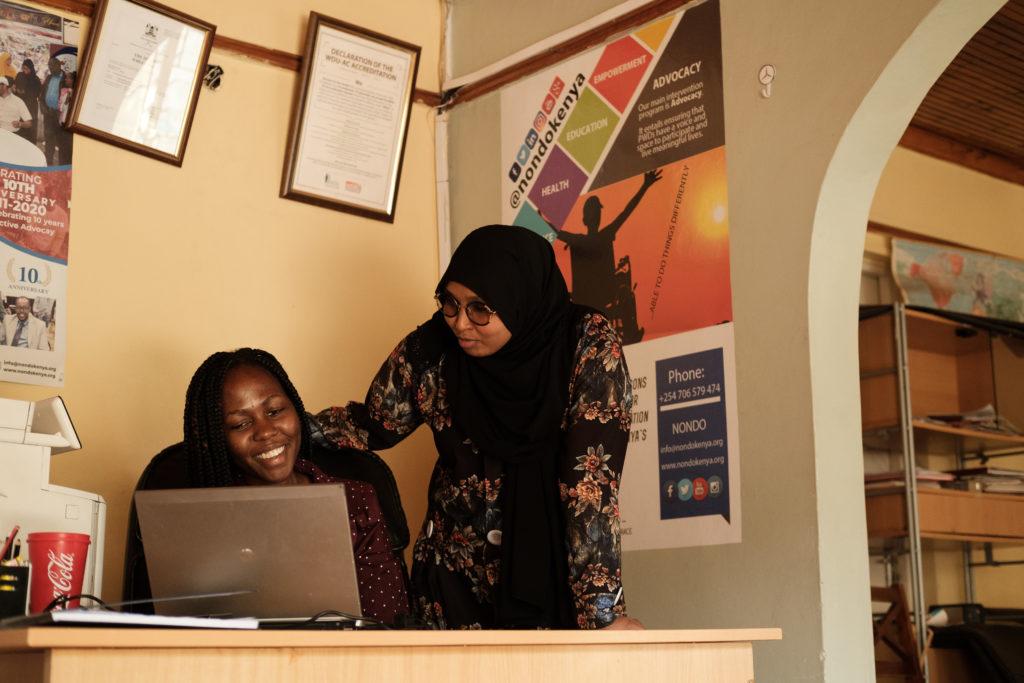
How are you being the change that you want to see in the world?
By using my voice to amplify the voices of persons with disabilities who do not have the platform I have today. I am trying to ensure that that the most marginalized are focused on. For example, I believe in the idea of “leave no one behind”. I believe that I am making a change starting from the most vulnerable. In Kenya, the most vulnerable people are the pastoralists living in the remote areas I work with.
I believe that with the partnerships with other organizations, development agencies, other stakeholders from disability sectors, government, private sector, this change, however slow, will be achieved.
So what was the turning point for you, that took you from being just a regular person to a transformative leader?
Before I started working for this organization, I never knew my rights or how to fight for them. There was a day when there was an opportunity for a scholarship to join university and I realized that I was the only person applying with an impairment. I had already passed all the other tests and was left with dictation. As a person with a visual impairment, most of my life I had used Braille. I can use print but with a lot of struggles. That day, Braille was not available. If I knew my rights as a person with disability, I would have been able to challenge them and ask for the reasonable accommodation I needed for my test. I struggled to answer. Three questions were read while I was still trying to answer the first question. It is not because I couldn’t compete with them, it is because they didn’t give me reasonable accommodations. I wasn’t able to get that opportunity.
This was a turning point in my own mind. I decided that I needed to create awareness around the issues affecting persons with disabilities. Because of this experience, I am currently running a scholarship and mentorship program where children who are in school get the opportunity to have career guidance and learn about their rights.
Where did you attend university?
I studied at Kenyatta university starting in 2011. I studied education. I really love teaching because you can see the impact you’re creating.
What impact did reasonable accommodations, and the advocacy of previous leaders in the disability community have on you as a university student?
My life was more comfortable at university because of past transformative leaders with disabilities. On campus, there was a tuk-tuk taking students with disabilities from one point to another within the university. It made things easier and got me to class on time. Also, we were accorded more time to finish exams, and given a specific room. The university also made sure that persons with disabilities had accessible, uncrowded rooms to live in.
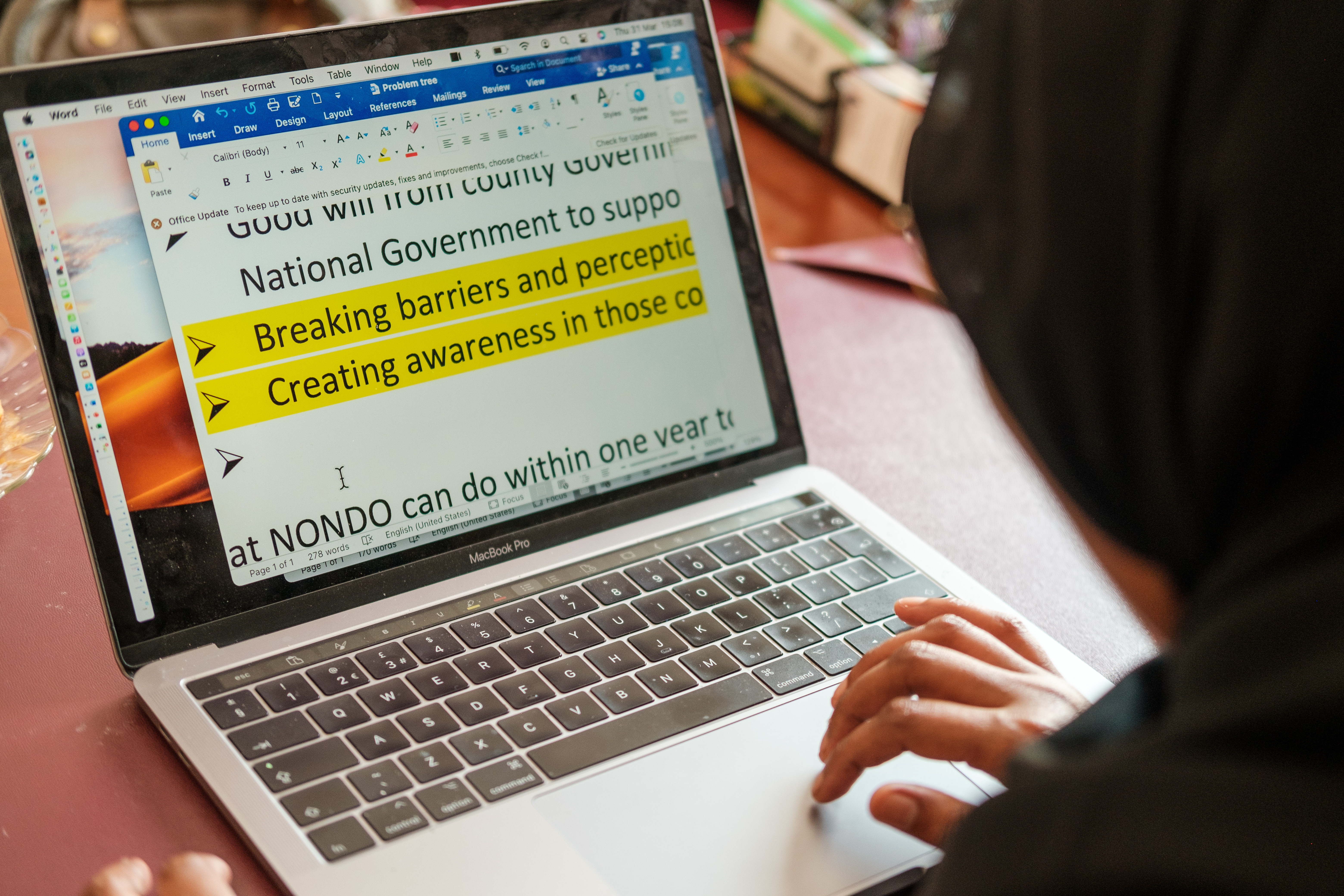
Kenyatta University also started hosting a day for persons with disabilities and raising awareness. On this day, students would spend time with us and learn about disability. That was a very important day for persons with disabilities because we were given the space to discuss issues that affect us with the Vice Chancellor. While she was there listening, it was easier to advocate for change directly to the administration.
So what can development partners like Mastercard Foundation do to support the growth of transformative leaders like you?
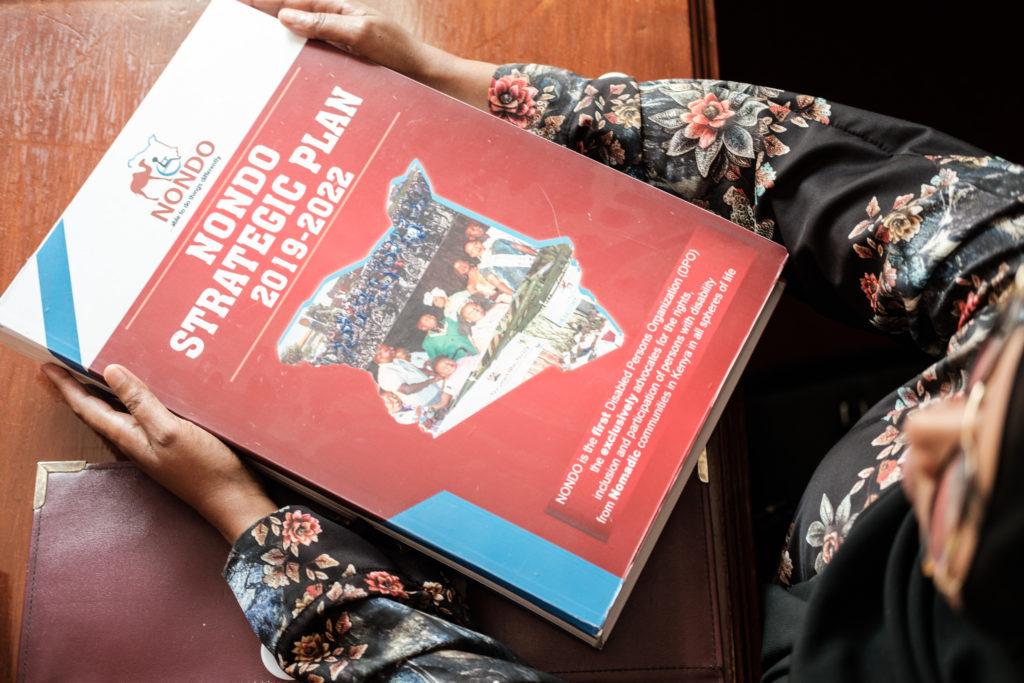
They should be deliberate, meaning they should know that there are people with disabilities in their programing and they should be there on purpose. If people with disabilities are not present, they should ask the question why. It could be because of access to information and other barriers.
They should also nurture the talents of persons with disabilities because many of us are gifted in different ways, but because of lack of resources and exposure, it’s difficult to be noticed.
At a systematic level, what needs to be done to create an inclusive society across Africa?
We need policies that demand for inclusivity. The policies should be implemented, because we have a number of policies for disability but we are lacking on the implementation part.
Also, development partners need to fully engaging with OPDs. When they don’t, our voices are not loud enough for the policy makers to listen to us.
